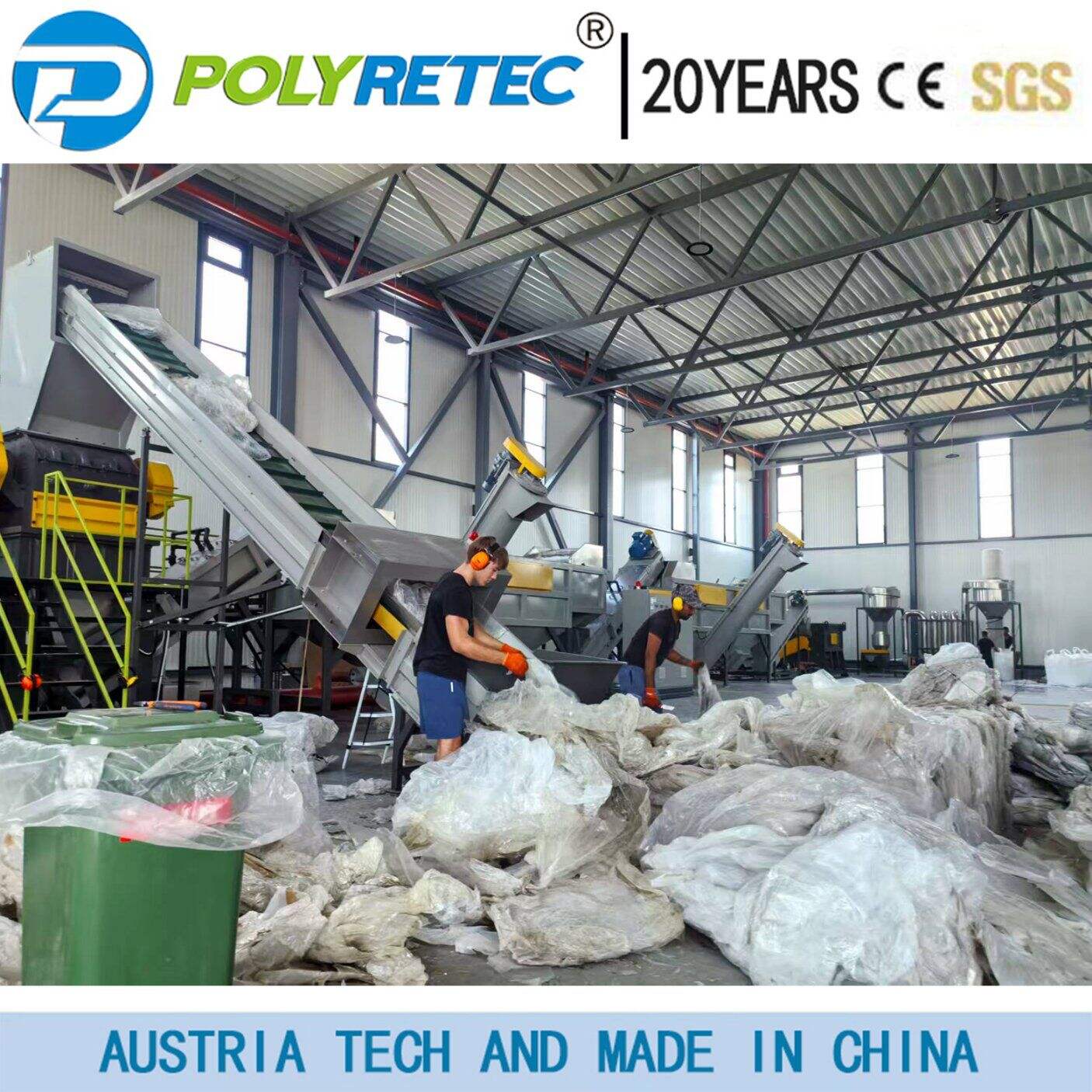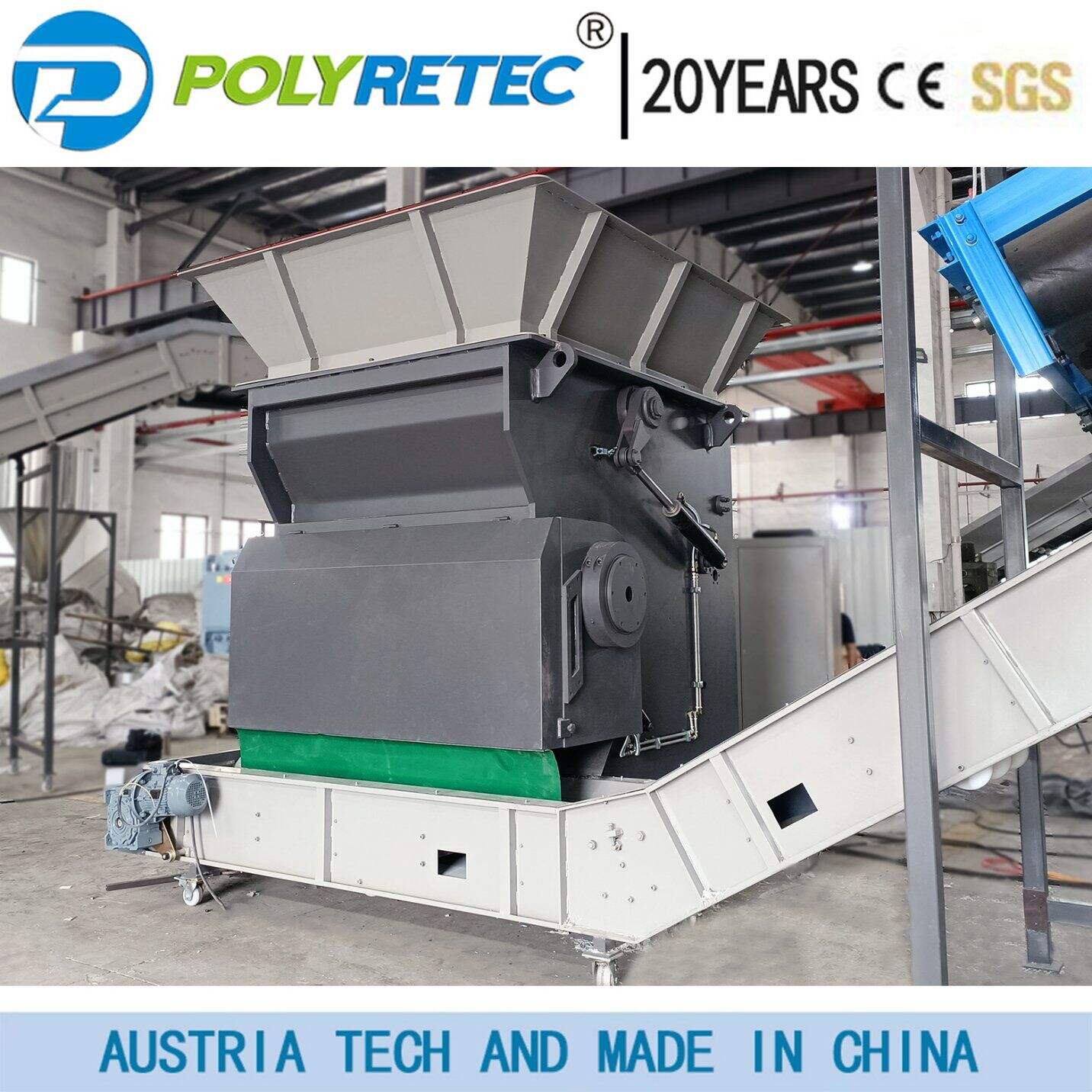Maximizing Industrial Recycling Performance Through Advanced Technology
In today's environmentally conscious world, optimizing recycling operations has become crucial for both sustainability and profitability. A well-designed recycling machine stands at the heart of efficient material recovery facilities, enabling businesses to process more waste while minimizing operational costs. Understanding how to maximize throughput with your recycling machine can dramatically improve your facility's productivity and bottom line.
Modern recycling machines incorporate sophisticated technology to handle various materials, from plastics and metals to paper and glass. By implementing the right strategies and maintaining optimal operating conditions, facilities can significantly boost their processing capacity while ensuring high-quality output.
Essential Components of High-Performance Recycling Systems
Advanced Sorting Mechanisms
The cornerstone of any efficient recycling machine is its sorting capability. Modern systems utilize multiple sorting technologies, including optical sensors, magnetic separators, and air classification systems. These components work in harmony to precisely identify and separate different materials, significantly reducing contamination rates and improving overall throughput.
Recent innovations in sensor technology have enabled recycling machines to achieve unprecedented accuracy in material identification. Advanced optical sorters can now detect and separate materials based on their chemical composition, color, and physical properties, ensuring higher quality output streams.
Automated Feed Systems
Consistent material flow is crucial for maintaining optimal throughput levels. Automated feed systems regulate the input stream to prevent overloading and ensure steady processing. Modern recycling machines feature smart conveyor systems that adjust their speed based on material volume, preventing bottlenecks and maintaining efficient operation.
Integration of load cells and weight sensors helps monitor and optimize feed rates in real-time. This technology ensures the recycling machine operates at peak efficiency while preventing damage from overfeeding or irregular material distribution.

Optimization Strategies for Maximum Efficiency
Preventive Maintenance Protocols
Regular maintenance is fundamental to maintaining high throughput levels in any recycling machine. Implementing a comprehensive preventive maintenance schedule helps identify potential issues before they affect performance. This includes regular inspection of wear parts, lubrication of moving components, and calibration of sorting systems.
Digital maintenance tracking systems can help facilities monitor equipment health and schedule maintenance activities efficiently. These systems can predict potential failures and recommend maintenance intervals based on actual usage patterns and performance data.
Process Flow Analysis
Understanding and optimizing material flow through your recycling machine is essential for maximizing throughput. Regular analysis of process flows helps identify bottlenecks and inefficiencies that may be limiting performance. Modern facilities use advanced analytics tools to monitor and optimize their recycling operations in real-time.
Data collection and analysis enable operators to make informed decisions about equipment settings and operational parameters. This information-driven approach helps maintain consistent performance and identify opportunities for improvement.
Technology Integration for Enhanced Performance
Smart Control Systems
Modern recycling machines benefit from sophisticated control systems that monitor and adjust operations in real-time. These systems use artificial intelligence and machine learning to optimize processing parameters automatically. Smart controls can adjust sorting accuracy, feed rates, and other variables to maintain peak performance under varying conditions.
Integration with facility-wide management systems provides comprehensive oversight and control of the entire recycling operation. This connectivity enables better coordination between different processing stages and more efficient resource allocation.
Data Analytics and Reporting
Advanced analytics capabilities help facilities track and improve their recycling machine performance over time. Modern systems generate detailed reports on throughput rates, material quality, and operational efficiency. This data helps operators identify trends and make informed decisions about process improvements.
Cloud-based reporting systems enable remote monitoring and management of recycling operations. This capability is particularly valuable for organizations with multiple facilities or those seeking to optimize their operations across different locations.
Future Trends in Recycling Machine Technology
Artificial Intelligence and Machine Learning
The future of recycling machines lies in the integration of AI and machine learning technologies. These advanced systems will enable more precise material identification and sorting, leading to higher throughput rates and better quality output. Self-learning algorithms will continuously improve performance based on operational data and experience.
AI-driven predictive maintenance systems will help prevent unexpected downtime and optimize maintenance schedules. This proactive approach will ensure consistent performance and longer equipment life.
Industrial Internet of Things Integration
The Industrial Internet of Things (IIoT) is transforming recycling machine operations through enhanced connectivity and data exchange. Connected sensors and devices provide real-time monitoring of equipment performance and environmental conditions. This integration enables more efficient operation and better resource utilization.
Future recycling machines will be fully integrated into smart factory systems, enabling seamless coordination with other facility operations and automated optimization of processing parameters.
Frequently Asked Questions
How can I determine the optimal throughput rate for my recycling machine?
The optimal throughput rate depends on various factors including machine specifications, material type, and desired output quality. Start by consulting your equipment manufacturer's recommendations and gradually adjust based on actual performance data and quality requirements. Regular monitoring and analysis of operational metrics will help identify the sweet spot for your specific application.
What maintenance practices are most critical for maintaining high throughput?
Key maintenance practices include regular cleaning of sorting sensors and components, timely replacement of wear parts, proper lubrication of moving parts, and calibration of control systems. Implementing a preventive maintenance schedule and keeping detailed maintenance records helps ensure consistent performance and prevents unexpected downtime.
How often should I upgrade my recycling machine's technology?
Technology upgrade cycles typically depend on your operation's specific needs and the pace of technological advancement in the industry. Consider upgrading control systems and sorting technology every 3-5 years to maintain competitive performance. However, regular software updates and minor hardware improvements can be implemented more frequently to optimize existing equipment.




